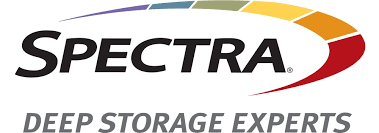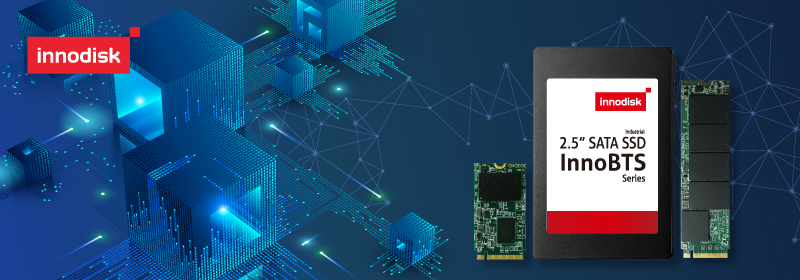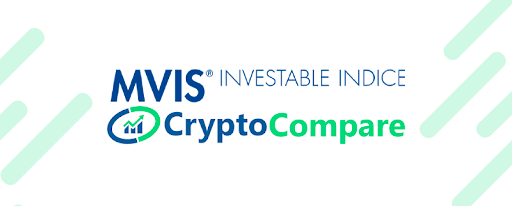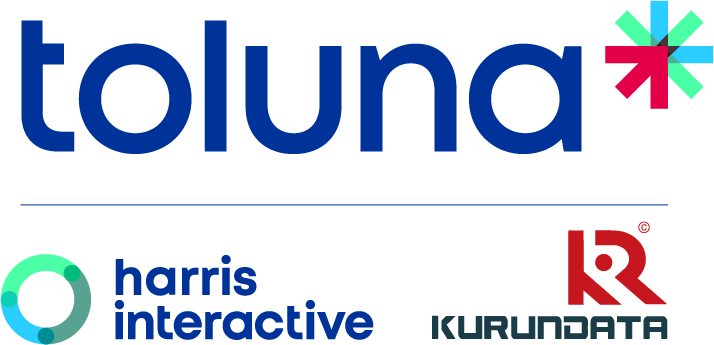Published
- 02:00 am

According to a new Kaspersky report, the financial threat landscape experienced a game-changing pandemic year. In the report, titled Financial Cyberthreats in 2020, it was found that while the overall volume of threats via PCs or mobiles decreased during this period, Kaspersky experts noticed cybercriminals using new and advanced propagation techniques. The geography of attacks has become more diversified and extensive – especially from a mobile financial malware perspective.
Traditionally a lucrative avenue for malicious users, these developments, and the focus on mobile represents a change of tack. Mobile bankers have experienced particular impact by this, being a type of malware that is designed to steal users’ credentials, or even funds from users’ accounts.
Back in 2019, the 10 countries with the highest percentage of users that encountered Android banking malware included:

Countries with the highest percentage of users that encountered Android banking malware in 2019
In 2020, the situation changed entirely, however, and Kaspersky experts report that all targeted countries have switched places on this chart. Russia, a longtime leader in this category, moved down to seventh place in 2020. At the same time, Japan and Taiwan, absent from the list of affected countries in 2019, rose rapidly to occupy the top two spots.

Countries with the highest percentage of users that encountered Android banking malware in 2020
“In 2020, we observed a number of new countries becoming a hotbed for cyber-infections. The clearest example of this is Japan, which faced a wave of attacks from the Wroba.g banking Trojan. The bright side here is that most of these attacks can be prevented. Therefore, we urge users to take extra care when conducting mobile financial transactions,” comments Victor Chebyshev, security expert at Kaspersky.
In order to protect themselves from financial malware, Kaspersky experts advise users to take the following measures:
- Only install applications from reliable sources such as official stores
- Check what permissions the application requests – if they do not match the program’s functions, then they should be questioned
- Install a trusted security solution such as Kaspersky Security Cloud to protect you against a wide range of financial cyber threats
- Install all latest updates and patches for existing software on a continuous basis
To learn more about financial malware and additional findings from the report, Financial Cyberthreats in 2020, visit Securelist.com.
About Kaspersky
Kaspersky is a global cybersecurity company founded in 1997. Kaspersky’s deep threat intelligence and security expertise is constantly transforming into innovative security solutions and services to protect businesses, critical infrastructure, governments and consumers around the globe. The company’s comprehensive security portfolio includes leading endpoint protection and a number of specialized security solutions and services to fight sophisticated and evolving digital threats. Over 400 million users are protected by Kaspersky technologies and we help 250,000 corporate clients protect what matters most to them. Learn more at www.kaspersky.com.
Related News
- 05:00 am

Americans are losing billions due to internet crime each year. However, 2020 was a record year for both the cybercrime victims and the combined financial losses caused by these malicious attacks.
According to data presented by StockApps.com, the total annual loss of cybercrime in the United States hit $4.2bn in 2020, a 55% increase in two years.
Business Email Compromise Schemes Caused 40% of Total Cybercrime Losses
Cybercrime costs include damage and destruction of data, stolen money, theft of intellectual property, personal and financial data, post-attack disruption to the normal course of business, restoration of hacked data and systems, and reputational harm.
In 2005, the combined financial loss caused by cyber-attacks and frauds amounted to $183.1 million, revealed the FBI's 2020 Internet Crime Report. By the end of 2011, this figure soared by 165% to $485 million and continued rising.
In 2015, the total financial damage caused by cybercrimes in the United States hit $1bn for the first time, but that was just the start of its massive growth. By 2019, this figure tripled and hit $3.5bn. Last year, almost 792,000 complaints were logged by the FBI's Internet Crime Complaint Center (IC3), with total losses jumping by 20% YoY to $4.2bn.
Statistics show phishing attacks, non-payment scams, and extortion were the most frequent internet crimes in the United States. However, business email compromise schemes were the costliest cybercrimes, causing $1.8bn or 42% of total losses last year.
The IC3 report showed last year also witnessed a number of cyber schemes exploiting the COVID-19 pandemic with both individuals and businesses targeted. More than 28,500 received complaints related to COVID-19 scams, and most of them aimed at the Coronavirus Aid, Relief and Economic Security Act. Many Americans were also scammed to provide personal information in exchange for vaccination appointments.
Cyberterrorism the Biggest Potential Threat to the United States
Over the years, the United States has had to cope with a long list of threats, from geopolitical tensions with China and Russia to international terrorism and the spread of infectious diseases. Ultimately, the COVID-19 outbreak emerged as one of the most serious threats country ever faced.
Despite that, the pandemic is not viewed as the biggest threat to the United States by the public. According to a Gallup survey, cyberterrorism is viewed as the top threat by Americans. More than 80% of respondents named it the most critical threat the country will face over the next decade.
The development of nuclear weapons by North Korea and Iran ranked second and third on the threat list, while international terrorism and infectious diseases were tied in fourth place.
The full story can be read here: https://stockapps.com/blog/2021/03/31/us-cyber-crime-surged-by-55-in-two-years-annual-loss-hit-4-2b-in-2020/
Related News
- 04:00 am

Spectra Logic, a leader in data storage and data management solutions, today announced the publication of its annual “Data Storage Outlook” report, which explores how the world manages, accesses, uses and preserves its ever-expanding data repositories. The sixth edition of the report predicts the data storage strategies, architectures and technologies that will enable the protection, management and preservation of historical, current and future data for generations to come.
Spectra’s comprehensive 2021 Data Storage Outlook report provides forecasts for several data storage technologies, including flash, magnetic disk, tape, hybrid cloud, persistent memory and optical, along with a view into future technologies.
“The pandemic has made predicting the future an uncertain task, but even so, it is vital that data storage technology manufacturers and users of data alike have access to insights to help them anticipate future technologies, applications, use cases and costs, as accurate planning today is critical to achieving success tomorrow,” said Spectra Logic Senior Director of Emerging Markets David Trachy.
Highlights from Spectra’s 2021 Data Storage Outlook Report:
- Flas: Flash vendors will increasingly rely on the string-stacking technique, where multi-layer flash dies are connected together to create a flash chip with more layers. This may result in fewer cost decreases in flash. System and cloud providers will take advantage of the zone-based interface (enabling the physical placement of data into zones matching the performance needs of the data) to get longer life, better performance and greater capacity out of their flash assets.
- Disk: The two predominant industry leaders in disk are taking drastically different strategies in moving to higher capacity drives, with one entirely focused on HAMR (as the entire future roadmap of disk is dependent upon it), and the other focused on a more incremental approach, utilising eMAMR, MAMR and HAMR. SMR (shingled magnetic recording) versions of these drives will further improve capacity by 20% making them very attractive to system and cloud providers.
- Tape: LTO-9 tape will be shipping later this year with a capacity point of 18TB per cartridge, a 50% capacity increase over LTO-8. A new de-facto standard interface has emerged that, when supported by tape system suppliers, would greatly expand the number of applications that could utilise tape.
- Hybrid Perpetual Storage: The onset of new hybrid storage systems will allow for utilising either cloud and/or on-premise processing capabilities, while providing for the long-term retention of the raw and refined data of that processing, independent of where that processing occurs.
- Persistent Memory: Persistent memory based on 3D XPoint technology, now readily available for purchase in a variety of capacities, has the potential to be highly disruptive to the DRAM marketplace.
Spectra continues to envision a logical two-tier architecture comprised of multiple storage types, with the primary tier’s storage requirements satisfied entirely through solid-state disk (SSD) storage technologies, and the secondary storage tier fulfilled by magnetic disk, tape and cloud deployed as object storage, either on-premise or in the cloud.
With unprecedented conditions taking place over the past year due to COVID-19, presenting new risks and exposing companies to vulnerabilities as a result of having to adjust to becoming almost totally virtual overnight, this latest edition of Spectra’s Data Storage Outlook report highlights the importance of embodying a resilient “dare-to-dare” attitude, encouraging organisations to plan ahead, pivot fast and innovate anew, despite challenges that may be ahead on their technology journey.
To download Spectra Logic’s full “2021 Data Storage Outlook” report, visit here.a
Related News

Krishnan Subramanian
N/A at Menlo Labs
- 08:00 am

Fintech firm Monva has exceeded its fundraising target of £200,000 via Crowdcube. With 10 days of fundraising still remaining, Monva continues to invite further investment from the crowd as it enters a period of overfunding. This latest funding round comes one year after smashing its initial crowdfunding target in 2020 and comes ahead of an larger institutional round expected to take place towards the end of 2021.
Monva is a new smart comparison service which uses customer data and artificial intelligence to personalise and revolutionise the price comparison customer experience. The personalised service helps users make smart decisions which are right for them, while its technology and automation means there are less forms to fill in, making it easier to compare and buy. The service is the brainchild of CEO Steve Wiley and COO Stuart Wakefield, who previously held senior executive positions at MoneySuperMarket, MBNA and Virgin Money, with decades of experience in Fintech and financial services.
Commenting on the fundraising success, CEO Steve Wiley said: “We’re thrilled to have once again surpassed our funding goal on Crowdcube and grateful to all of those who have invested so far."
“As we now enter a period of overfunding, we are more excited than ever about our mission to revolutionise the price comparison experience, using technology and automation to help our customers make smart financial decisions that help them save time and money not just now, but in the long run too. Given that over 80% of people in the UK have either never switched a product or rarely switch, our aim is to serve not only those who use comparison today, but also those who have been put off in the past by using services promoted by gimmicks that have little to do with the customer experience.”
“Since our last raise in May 2020, Monva has made incredible progress. We have hired several senior specialists; built partnerships with key brands to enable extensive product coverage across credit cards, loans and energy; and built key elements of our innovative technology through our Ai chatbot, online dashboard and foundation automation services. We’re excited about the huge opportunity ahead of us to continue building Monva and developing the next generation of price comparison service for our users.”
Related News
- 06:00 am

The increasing ubiquity of AI in everyday applications brings with it concerns regarding data integrity and validation.
Innodisk’s new-patented blockchain technology brings to its latest SSD solution “InnoBTSTM SSD” and alleviates these concerns through sophisticated use of digital signature and blockchain that is fully software independent.
Integrated with Distributed Ledger Technology and Tamper-proof
Innodisk announces its new solution combines blockchain technology to secure the valuable data in recent IoT scenarios, such as POS systems at unmanned stores, smart meters, digital ID cards. The important data written to the SSD will create an encrypted hash string that corresponds to the specific data set, and the encrypted hash string is spread on the blockchain network, essentially creating a decentralized ledger that is distributed between numerous unique computers. The process is to make the encrypted hash string to be “chained” on the blockchain network. If tampering happens, the chained data is checked with an encrypted hash string on the network, clearly showing any discrepancies.
Automatic Generate Digital Signature and Easily Verified
The InnoBTSTM SSD incorporates a hardware-run digital signature. Through the sophisticated use of private and public keys given to each file that is sent, the receiver can always verify the correct sender. The SSD creates and secures the private key within an internal safety zone, ensuring maximum private key security. Only the public key will be available for anyone to verify the correct sender.
Full Software Independence
The new InnoBTSTM SSD series benefits from blockchain technology and data streaming combine to create an industry-leading solution for data integrity at the edge. Removing the need for software eases system integration as well as strengthening data integrity by moving the functions to the more inaccessible SSD firmware.
Innodisk’s solution allows for easy blockchain setup for edge applications that is not reliant on software, and meanwhile connects numerous devices to the blockchain network. This makes the InnoBTSTM SSD suitable for cutting-edge AI applications such as smart cities, smart vehicles, smart factories, and intelligent surveillance.
About Innodisk
Innodisk is a service-driven provider of flash memory, DRAM modules, and embedded peripheral products for industrial and enterprise applications. With satisfied customers across a range of demanding industries, we have set ourselves apart with a commitment to exceptional products and service.
For more information about Innodisk, please visit https://www.innodisk.com
Related News
- 06:00 am

Avantis Regtech, a leading regulatory technology solutions company from the house of TeamLease Services, shared findings of their recent survey on the compliance landscape in India. According to the survey close to 75% of the companies had missed out on at least one critical compliance because compliances are complex and majorly still based in India. In fact, while responding to the survey, nearly 98.6% employers have reiterated the need to digitise the compliance process in the country as they feel that it would simplify and make the process easier to manage.
Addressing the regulatory cholesterol in India and sharing insights on the survey, Mr Rishi Agrawal, CEO, Avantis Regtech Pvt Ltd – A TeamLease Group Company, said, “Managing compliance in India is an up-hill task, as the landscape is very complex. We have a universe of 1,536 Acts and 69,233 Compliances that change over 3,000 times a year. Each company not only has to deal with multiple compliance requirements but also numerous deadlines. It thus becomes difficult for organizations to stay informed about these changes and ensure compliance in time. Further, to make matters more complex out of the compliance landscape close to 65% are still paper based making the process even more cumbersome. All of this not only leads to fines and penalties for organizations, but also impacts India’s ease of doing business”.
Delving deep into the study, some of the other key findings include:

“The need of the hour is to simplify, rationalize, digitize and de-criminalize the regulatory ecosystem to create a cashless, presence less and paperless compliance process. One of the major aspect that should be considered to improve the ecosystem is setting up of a National Compliance Commission which should aim to reduce the compliance burden by at least 50%. Additionally creating a Unique Enterprise Number (UEN) (for creating a single corporate identity) and launching an Enterprise Digi Locker will enable better compliance profiling of companies. All of this will help to eliminate redundancy, remove duplication, improve record keeping, in turn making the whole process faster and seamless”, added Mr Agrawal.
A focussed survey, the study analysed feedback from compliance professionals from more than 121 organisations across different industries.a
Related News
- 06:00 am

MV Index Solutions GmbH (MVIS®) in partnership with CryptoCompare, global leader in digital asset data, today announced the licensing of the MVIS CryptoCompare Ethereum VWAP Close Index (ticker: MVETHV) to VanEck for the use as underlying for their second cryptocurrency exchange-traded product with MVIS that allows investors to participate in the development of Ethereum on an exchange-traded basis.
“We are pleased to license our MVIS CryptoCompare Ethereum VWAP Close Index to VanEck. This is their second cryptocurrency exchange-traded product with us, following the licensing of the MVIS CryptoCompare Bitcoin VWAP Close Index“, said Thomas Kettner, COO at MV Index Solutions.
“Amidst a global shift in greater institutional adoption of digital assets, we are excited to provide VanEck with a robust underlying index for their Ethereum ETN. Building upon the success of the MVIS CryptoCompare product suite, we look forward to the continued expansion of high-quality, institutional-grade digital asset products.” said Charles Hayter, CEO and Co-Founder of CryptoCompare.
“A lot of cryptocurrencies use Ethereum as a platform,” Martijn Rozemuller, Head of Europe at VanEck commented. “We believe that Ethereum's many possible applications will benefit from the growing use of blockchain in both the financial industry and the rest of the economy. Accordingly, Ethereum represents an exciting investment opportunity from our point of view, allowing investors to diversify their portfolio with another promising cryptocurrency alongside Bitcoin.”
The MVIS CryptoCompare Ethereum VWAP Close Index (ticker: MVETHV) is an index designed to measure the performance of a digital assets portfolio which invests in Ethereum, with a closing value based on an hourly VWAP price. The rules-based index covers the broadest aggregate pricing for indices calculated by CryptoCompare. Detailed information about MVIS CryptoCompare Indices, including methodology details and index data, are available on the MV Index Solutions website.
Related News
- 02:00 am

Refinitiv announced the launch of House Views and Market Insights (HVMI), its next generation intelligent content management capability for wealth management firms. HVMI enables the efficient distribution of investment recommendations and research by connecting product and content manufacturers teams with wealth advisors.
More than ever, wealth firms need to be proactive in engaging clients and deliver timely and relevant insights. In this regard, wealth firms are challenged with effectively connecting and distributing the research and portfolio advisory content needed by advisors to support construction, portfolio management and investment insight needs. Managing all this content effectively and efficiently is critical for advisors to improve how they engage their clients and importantly, how they take action on this information.
HVMI addresses this challenge acting as a repository for all in-house research, investment recommendations and strategy, risk ratings, convictions and model portfolio. In addition, it commingles internal and external data sources with relevant market data news in a single place, helping firm generate insights. Ultimately, it connects different in-house teams to the Advisors, improving the overall advisory process.
Marina Chernyshova, Research Director – Governance, Wealth and Investment, at Brewin Dolphin Ltd., said: “With Refinitiv ‘House Views and Market Insights’ (HVMI) Brewin Dolphin has consolidated all research team output to HVMI in a clear and an effective way. This allows investment and relationship managers to have access to all in-house research content through an established and integrated content & research management solution, alongside relevant financial data and news feeds from Refinitiv. We continue working with the Refinitiv team to develop and integrate it further to withstand the challenges of our ever-evolving environment.”
Christopher Sparke, Head of Advisory Solutions, Wealth at Refinitiv, said: “Advisors today are faced with information overload and siloed systems which get in the way of productivity and time spent with clients. HVMI removes the noise from the information overload and simplifies the workflow. It intelligently alerts the Advisor on key updates relevant to their clients, it makes critical updates to risk or return known and it provides workflow tools and alerting to support taking the next best action.”
HVMI is built on a flexible open platform and can be accessed via Refinitiv Workspace for Wealth Advisors or an integrated API. Refinitiv has a rich history of servicing the Wealth Management industry from front to back office. Over the last year, the firm has invested heavily in the business and is committed to bringing the most advanced solutions to the market. The ongoing transformation includes building out the firm’s solutions through strategic acquisitions such as Scivantage and the launch of Refinitiv Digital Investor.
Related News
- 09:00 am

A Toluna survey on the impact of Covid-19 on savings. The survey questioned 994 adults in the UK.
KEY FINDINGS
A third of Brits are better off than they were since the pandemic began - but those with more money are far more likely to be over 65.
- 30% feel like they have more money now than they did 12 months ago.
- 27% of those surveyed said they have less money now, a year into the pandemic.
- 46% of those over 65 said that they have more money now than they did in March 2020 - compared to 27% of those aged between 18 and 65 years of age.
People who do have extra money are planning to use it wisely. 50% state that saving it ‘for a rainy day’ and 45% state that putting it directly into a savings account will be in the top 3 things they do with the additional money.
With their additional cash, the research found that:
- 40% of people plan to spend it on a well-deserved holiday.
- Just under a third (32%) plan to use the money to improve their home.
- A similar percentage (31%) are going to make use of it when lockdown ends and shops, bars and restaurants start opening again.
The biggest factor in deciding what to do with the surplus money, however, all depends on our age…
- Spending it on a holiday is one of the most popular choices among the 66+ age group (54%)
- For those aged 50 to 65 years old, 43% will save the surplus money but the same amount will likely splurge it on a holiday.
- Spending the money on property or a mortgage overpayment is a much more popular choice for those aged 35 to 49 (over a third said they’re choosing to spend the surplus money in this way, 34%).
- 31% of the youngest age group surveyed, 18–34-year-olds, stated that they too would spend any additional money in this way.
Saving money is a key priority in 2021 and beyond.
The research found that people want to increase the amount they have in savings over the next year.
Over a third (37%) of people with a savings account expect to increase the amount of money they have in there, compared with 16% expecting to decrease.
This is especially the case for people who feel they have more money than a year ago - a resounding two thirds - 66% - of them are going to increase the amount in savings.
Pension savings are getting more attention but Covid has affected those approaching retirement.
The research revealed that Brits are expecting the amount of money in their pension investment to increase.
- 29% of people expect the amount they have invested to rise
- However, Covid-19 is having an effect on those approaching retirement with one in ten 50- to 65-year-olds stating that they’re intending on retiring later as a result of the pandemic.
QUOTE
Michael Worledge, Financial Services Sector Head, Harris Interactive, said: “There is a clear divide between those that have experienced financial benefits as a result of the pandemic and those that have not, and it is those of working age that are more likely to be the financial losers. It is positive for the industry that people plan to increase the amount held in savings and we should expect strong demand for attractive savings and investment propositions, even in this low interest rate environment.”









